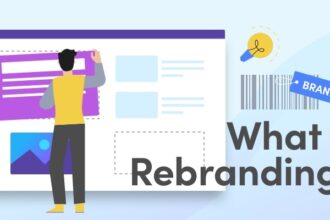Introduction
Launching a brand in Nigeria means more than just having a nice logo and a catchy jingle. Your online presence is the conversation people have about you online—before they even DM you, before they pop into your store, before they decide to buy. This audit isn’t about chasing every shiny metric; it’s about understanding what’s actually working for Nigerians where you are and where you’re not, then fixing the gaps without turning your life into a spreadsheet nightmare. Let’s roll up our sleeves and give your online presence a proper Nigerian-grade checkup.
- Introduction
- Why Auditing Your Online Presence Matters for Nigerian Brands
- How to Audit Your Nigerian Brand
- Define Goals and Key Metrics
- Audit Owned Channels
- Audit Earned Channels
- Competitive Benchmarking (Nigeria-Focused)
- Audit Third-Party Data and Local Presence
- Create an Action Plan
- Recording Findings: Templates and Dashboards
- Conclusion and Next Steps
Why Auditing Your Online Presence Matters for Nigerian Brands
- Local Visibility: Nigerians actively use search and social media; a solid audit ensures you appear where your audience is.
- Trust in Local Context: Nigerian consumers value authenticity, speed, and cultural relevance.
- Competitive Edge: Many brands overlook consistency across platforms; auditing reveals opportunities to outshine competitors.
- Regulatory Awareness: Compliance with privacy and consumer protection norms reduces risk.
How to Audit Your Nigerian Brand
Define Goals and Key Metrics
- Clarify Business Goals: Focus on brand awareness, lead generation, e-commerce sales, or service inquiries.
- Choose Relevant Metrics: Track organic traffic, search rankings for Nigeria-specific queries, social engagement, profile completeness, review sentiment, email deliverability, and conversion rates.
- Set Targets and Timeframes: Establish realistic goals for the next 90 days.
Audit Owned Channels
Website
- UX and Mobile-First Design: Ensure the site loads quickly on mobile networks common in Nigeria and has intuitive navigation.
- SEO Basics: Verify title tags, meta descriptions, header structure, and image alt text. Target Nigeria-specific search queries.
- Content Quality: Ensure blog content is educational, relevant, original, and includes clear calls-to-action.
- Performance: Check load times, uptime, and accessibility using tools like PageSpeed Insights and Lighthouse.
- Local Signals: Include address, phone number, local keywords, and a clear local contact page.
Social Media Profiles
- Consistency: Ensure brand voice, imagery, and bios align across platforms (Facebook, Instagram, X/Twitter, TikTok, LinkedIn as relevant).
- Bio Optimization: Include a clear value proposition, location, contact method, and links.
- Posting Cadence: Maintain regular, varied content reflecting Nigerian audience interests and languages.
- Engagement Quality: Monitor response times, helpfulness, and community management.
Email Marketing
- List Health and Permissioning: Use double opt-in where feasible; ensure clean signups.
- Deliverability: Track spam complaints, bounce rates, and engagement metrics.
- Content Value: Provide useful newsletters, offers, or educational content tailored to Nigerian readers.
Audit Earned Channels
Online Reputation
- Reviews: Assess volume, rating, recency, response rate, and quality on platforms Nigerians use (Google, Facebook, local directories, product review sites).
- Mentions: Analyze positive, neutral, or negative sentiment and identify key themes.
Media Mentions and Partnerships
- Check press coverage, influencer mentions, and community partnerships. Ensure logos, links, and citations are correct.
Competitive Benchmarking (Nigeria-Focused)
- Identify 3–5 local competitors.
- Compare website quality, SEO visibility for local keywords, social engagement, content quality, and reputation signals.
- Map gaps and opportunities to outperform competitors with Nigerian-relevant value propositions.
Audit Third-Party Data and Local Presence
Local Search and NAP
- Ensure Name, Address, Phone (NAP) consistency across directories.
- Optimize Google Business Profile (GBP) with accurate hours, services, posts, and Q&A.
- Register with Nigeria-focused business directories and map services.
Content and Search Presence
- Check for Nigeria-specific keywords and search intent.
- Verify structured data (e.g., LocalBusiness schema) where appropriate.
Risk and Compliance Checks
- Ensure privacy policies and terms comply with Nigerian data regulations.
- Include marketing consent, data usage notices, and cookie banners if applicable.
- Perform basic accessibility checks to broaden reach.
Dont miss: How to Secure Your Website Against Cyber Threats in Nigeria
Create an Action Plan
- Quick Wins (14 Days): Update contact page, claim/verify GBP, fix NAP across top directories, address technical SEO issues.
- Mid-Term (1–2 Months): Improve mobile speed, refresh bios and visuals for consistency, start a local content calendar.
- Long-Term (3–6 Months): Build local partnerships, expand to relevant Nigerian platforms, implement robust reporting dashboards.
Recording Findings: Templates and Dashboards
- Audit Template: Include sections for each channel, conclusions, recommended actions, owner, and target dates.
- Dashboards: Create a simple KPI sheet tracking traffic, rankings, engagement, reviews, email metrics, and local presence scores.
- Documentation: Keep versions of findings and track changes over time.
Conclusion and Next Steps
A Nigerian-context audit is crucial for staying relevant and competitive. Start with quick wins, then establish a repeatable audit cadence every 90 days. Use checklists, templates, or tailored audit services for ongoing support.
Image source: Mentionlytics.com






